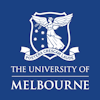|
Iran’s leaders have everything to lose if a major war breaks out with Israel. So, why take the risk with such an audacious missile strike this week?
From Iran’s point of view, Israel’s escalating attacks on its proxies, Hezbollah and Hamas, were tipping the scales in the region, writes Shahram Akbarzadeh. Standing up against Israel and the US is ingrained in the Iranian state identity, so it could no longer stay on the fence, despite the threat of direct Israeli retaliation.
Here in Australia, far from the conflict, our worst pain will be a likely hike in fuel prices.
We don’t import oil directly from Iran, but as Jamie Cross writes, our heavy reliance on South Korea, Singapore, Malaysia and India for supplies puts us at the mercy of rising oil prices worldwide.
|

|
Justin Bergman
International Affairs Editor
|
|

Shahram Akbarzadeh, Deakin University
Iran could no longer be seen as sitting on the fence, allowing its proxy allies, Hezbollah and Hamas, to engage with Israel on their own.
|

Jamie Cross, Melbourne Business School
Israel’s response to Iran’s escalation of the current Middle East conflict could cause oil prices to rise further in days to come.
|

Emma Shortis, RMIT University
In what was likely the last debate of the campaign, JD Vance and Tim Walz tackled foreign affairs, climate change and abortion. With a month until polling day, it’s not likely to matter much.
|

Shauna Hurley, Monash University; Rebecca Ryan, La Trobe University
Our research found clarity and consistency of information were key features of effective public health communication throughout the COVID pandemic.
|

Mia Martin Hobbs, Deakin University
This harrowing account of institutional military abuse draws on interviews with nearly 70 survivors and analyses every review and inquiry into military culture (35 in total) since the Vietnam War.
|

Michelle Grattan, University of Canberra
The government says changes to the unit pricing code will help ensure shoppers are not the victims of inflation by stealth when buying everyday products.
|

Colin Campbell-Hunt, University of Otago
Compared to countries we might benchmark against, New Zealand ranks poorly for inequality and the redistributive measures that would fix it. But other countries have shown it is possible to change.
|

Michael Odei Erdiaw-Kwasie, Charles Darwin University; Matthew Abunyewah, Charles Darwin University; Patrick Brandful Cobbinah, The University of Melbourne
Urban mining recovers valuable resources from the vast amounts of waste cities produce.
|

Milo Barham, Curtin University; Andrej Šmuc, University of Ljubljana; John Allan Webb, La Trobe University; Kenneth McNamara, University of Cambridge; Martin Danisik, Curtin University; Matej Lipar, ZRC SAZU
Otherworldly karst landscapes, such as Western Australia’s famous Pinnacles, hold clues about Earth’s climate history – and future.
|

Anna-Sophie Jürgens, Australian National University
The new Joker sequel plays with the character’s long tradition of dual identity. But this time, the joke is on the audience.
|

Sarah Jefferson, Edith Cowan University
There are many reasons why children may need to have a significant break from school. It can help to return gradually.
|
Politics + Society
|
-
Denis Muller, The University of Melbourne
The Listen Loudly, Act Strongly report lays out systemic racism at the national broadcaster. In the face of external attack, the ABC needs to stand up for its culturally diverse staff.
|
|
Health + Medicine
|
-
Sebastian Furness, The University of Queensland
Patents for a drug related to Ozempic have expired, so pharmaceutical companies are working to develop ‘generic’ versions. These are likely to be much cheaper. But how do they compare with Ozempic?
|
|
Science + Technology
|
-
Dennis B. Desmond, University of the Sunshine Coast
Modern cars made in most countries have remote control and online data features. What matters is who can access that data – and the vehicle itself.
-
Sandra Peter, University of Sydney; Kai Riemer, University of Sydney
AI impacts many things beyond the flashy chatbots – often in ways that quietly improve everyday processes.
|
|
Environment + Energy
|
-
Jake M Robinson, Flinders University; Martin Breed, Flinders University
Imagine using tailored soundscapes to restore ecosystems, simply by amplifying recordings of sonic cues that attract wildlife, stimulate plant growth and rebuild relationships between species.
|
|
Education
|
-
Armin Alimardani, University of Wollongong
A recent study shows generative AI is not the academic powerhouse it is often made out to be.
|
|
Arts + Culture
|
-
Alexa Scarlata, RMIT University
The eight-episode series follows a range of fictional characters as they live through true events that took place in Australia in 1979.
|
|
Books + Ideas
|
-
David Nichols, The University of Melbourne
This celebration of public life in Melbourne’s Fitzroy, in 1974, reveals a vigorous working-class suburb evolving into a countercultural marvel of cheap ‘fixer-uppers’ and bohemian share houses.
|
|
Business + Economy
|
-
Antje Fiedler, University of Auckland, Waipapa Taumata Rau; Benjamin Fath, University of Auckland, Waipapa Taumata Rau
The aftermath of the 2008 global financial crisis was hard. But today’s ‘long squeeze’ could be even harder for small business owners, as consumer spending and survival options diminish.
|
|
| |
|
|
|
The Conversation AU/NZ
Melbourne VIC, Australia
•
Full Time
|

|
|
University of Wollongong
Wollongong NSW, Australia
•
Full Time
|

|
|
Royal Australian and New Zealand College of Ophthalmologists
Anywhere
•
Casual
|

|
|
|
|
| |
| |

|
| |
| |
| |
Featured Events, Courses & Podcasts
|
View all
|
|
|
|

|
8 - 29 November 2024
•
Sydney
|

|
11 - 15 November 2024
•
Perth
|

|
12 - 13 November 2024
•
MELBOURNE
|

|
|
|
|
| |
| |
| |
| |
| |
|
|